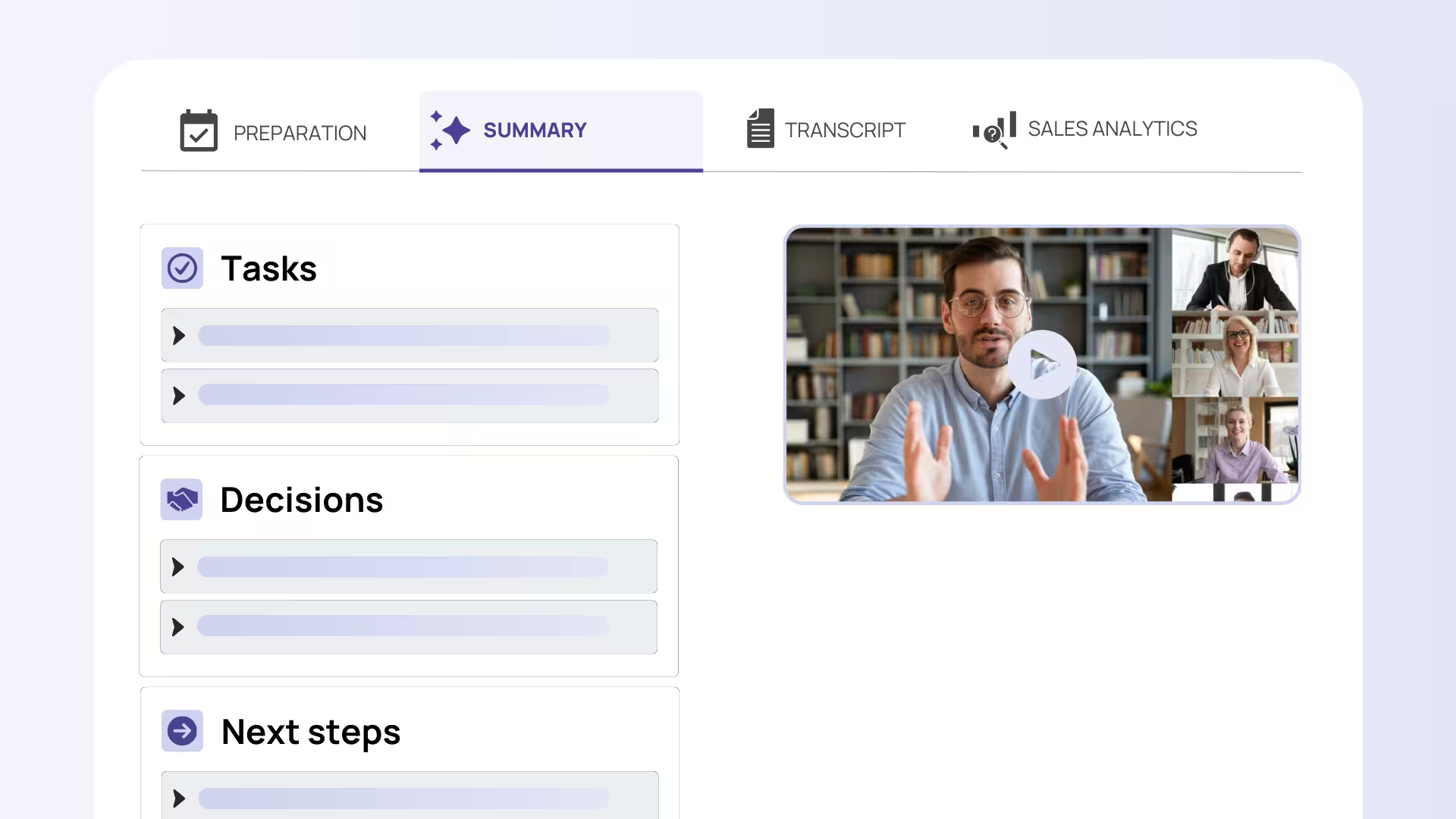Table of Contents
In an era where customer needs are rapidly evolving and digitalization is revolutionizing sales, effective sales support techniques are more crucial than ever. Modern buyers are well-informed, have higher expectations, and use various channels for their decision-making. At the same time, technology offers completely new opportunities to optimize sales processes and strengthen customer relationships.
This article shows you practical and comprehensive sales support techniques that can measurably improve your sales efficiency. From proven classical methods to innovative technological tools, motivating leadership approaches, and data-driven strategies – here you'll find a complete overview of modern sales support.
Classic and Proven Sales Support Methods
Overview of Proven Sales Techniques
Despite all technological advances, classic sales techniques remain the foundation of successful sales work. SPIN Selling is one of the most successful methods: Through targeted Situation, Problem, Implication, and Need-payoff questions, you conduct sales conversations in a customer-oriented and needs-based manner. This questioning technique helps you identify genuine customer needs and present suitable solutions.
The Challenger Sale approach goes one step further and positions you as an advisor who challenges customers with new perspectives. Instead of just responding to customer wishes, you proactively show optimization opportunities and thereby build trust and credibility.
SNAP Selling focuses on the four fundamental principles of modern customer approach: Simple, Invaluable, Aligned, and Priority. In a time of short attention spans, this method is particularly valuable for effectively reaching decision-makers.
The Sandler Training brings psychological principles into sales and teaches how to achieve sustainable sales success through skillful communication and relationship building.
Training and Workshops as the Foundation of Successful Sales Work
Regular training is the key to continuous improvement in sales. Product knowledge alone is not enough – modern sales professionals also need strong consulting skills, negotiation abilities, and digital competencies.
Practical workshops with role-playing, case studies, and simulations bring the greatest learning success. Real-life sales situations can be practiced and new techniques can be tried out risk-free. Particularly effective are regular coaching sessions where individual strengths and improvement potentials are discussed.
Continuous professional development is now a real competitive factor. Companies that invest in developing their sales teams demonstrably achieve higher closing rates and better customer satisfaction.
Technological Support: CRM, AI, and Automation
CRM Systems as the Heart of Sales Support
A professional CRM system is now indispensable for successful sales work. The main tasks include managing all customer contacts, clear pipeline visualization, and complete documentation of all sales activities.
Leading solutions like Salesforce, HubSpot, or Microsoft Dynamics offer much more than mere contact management. They enable detailed analyses, automated workflows, and seamless integration with other business applications. Through centralized data storage, all team members have constant access to current customer information and can act in a coordinated manner.
The integration of various tools creates particularly large efficiency gains. When CRM, email marketing, calendars, and project management tools work together, seamless processes are created without media breaks.
Artificial Intelligence in Sales
AI-based sales support is rapidly gaining importance. Modern systems can automatically perform lead scoring and prioritize potential customers according to their closing probability. This saves time and significantly increases success rates.
Automated proposal generation and personalized customer approach based on behavioral data make it possible to provide individual support even with high customer volumes. AI systems analyze purchasing behavior, create sales forecasts, and can even suggest optimal contact times.
Particularly valuable are AI tools that recognize patterns in successful sales conversations and use these insights for training new employees.
Workflow Automation and Meeting Tools
Automation minimizes time-consuming manual activities and creates more room for value-adding customer work. Modern systems can automatically distribute tasks, schedule appointments, and initiate follow-up activities.
A particularly interesting example is Sally, a GDPR-compliant AI meeting assistant that records, transcribes, and protocols sales conversations. Such tools ensure that no important information is lost and all conversation content is systematically documented. The integration with over 8000 platforms, including CRM and project management tools, makes Sally a valuable component of modern sales support.
By minimizing manual activities, sales professionals can focus on what really matters: building customer relationships and closing deals.

Motivation, Leadership, and Team Dynamics in Sales
Success Factors for Motivated Sales Teams
Motivated employees are the key to sustainable sales success. Effective incentive systems go beyond pure revenue commissions and also consider qualitative factors such as customer satisfaction or teamwork.
A positive feedback culture with regular coaching conversations creates trust and promotes continuous development. Constructive feedback should both acknowledge successes and identify improvement potential.
Team events and participatory decision-making processes strengthen the sense of belonging and identification with the company. When employees feel valued and see development opportunities, their willingness to perform automatically increases.
Modern Leadership Style in Sales
Modern sales leadership relies on coaching-oriented and participatory approaches. Instead of micromanaging, successful leaders promote self-responsibility and independent learning among their employees.
Emotional intelligence is particularly important in sales management. Leaders must understand both the needs of their employees and customer expectations and be able to respond appropriately.
The modern sales leader acts as an enabler who creates the best conditions for their team's success – through appropriate tools, continuous training, and a supportive work environment.
Data-Driven Sales Management and Customer-Centric Approaches
Sales Controlling and KPIs
Data-based sales management enables precise success measurement and continuous optimization. Key metrics such as conversion rate, sales cycle duration, and customer lifetime value provide insight into the effectiveness of various sales measures.
Regular tracking and reporting create transparency and enable early course corrections. Modern dashboard solutions visualize complex data and make trends quickly recognizable.

Predictive Analytics for Lead and Resource Selection
Through the analysis of sales and behavioral data, companies can now create precise forecasts and optimally deploy resources. Predictive analytics helps identify leads with high closing probability and prioritize them accordingly.
These data-driven approaches not only increase efficiency but also the accuracy of sales activities. Instead of relying on gut feeling, decisions can be based on solid data analyses.
Interface Management: Sales and Customer Service
Close collaboration between sales and customer service is crucial for long-term success. Common KPIs and coordinated communication processes create optimal conditions for upselling and cross-selling.
Voice of Customer (VoC) programs provide valuable information about customer satisfaction and improvement potential. These insights flow directly into the further development of products and sales strategies.
Target Group-Specific Sales Strategies and Long-term Customer Retention
Successful sales support considers the specific needs of different target groups. Segmentation by industry, company size, and maturity level enables tailored approaches and increases success probability.
Account-Based Marketing (ABM) interlocks marketing and sales activities for individual support of strategically important large customers. This approach requires intensive coordination but leads to significantly higher closing rates.
Sustainable relationship building with professional after-sales service and regular touchpoints secures long-term customer loyalty and generates continuous follow-up business.
Conclusion: Integrated Techniques for Sustainable Sales Success
Modern sales support techniques combine proven classical methods with innovative technological solutions and data-based decision foundations. The key lies in the intelligent integration of various approaches: SPIN Selling and Challenger Sale remain important foundations but are complemented by AI-based lead evaluation and automated processes.
Motivation and leadership remain decisive success factors. Coaching-oriented leadership, combined with modern tools and data-driven insights, creates optimal conditions for high-performance sales teams.
Customer-centric and long-term sales strategies provide companies with sustainable competitive advantages. Those who continuously train their sales teams, intelligently use technological tools, and optimize sales processes based on data lay the foundation for lasting success.
The future belongs to integrated approaches that combine human expertise with technological support. Companies that find this balance will be successful even in a rapidly changing market environment.



Try meeting transcription now!
Experience how effortless meeting notes can be – try Sally free for 4 weeks. No credit card required.
Test NowOr: Arrange a Demo Appointment





